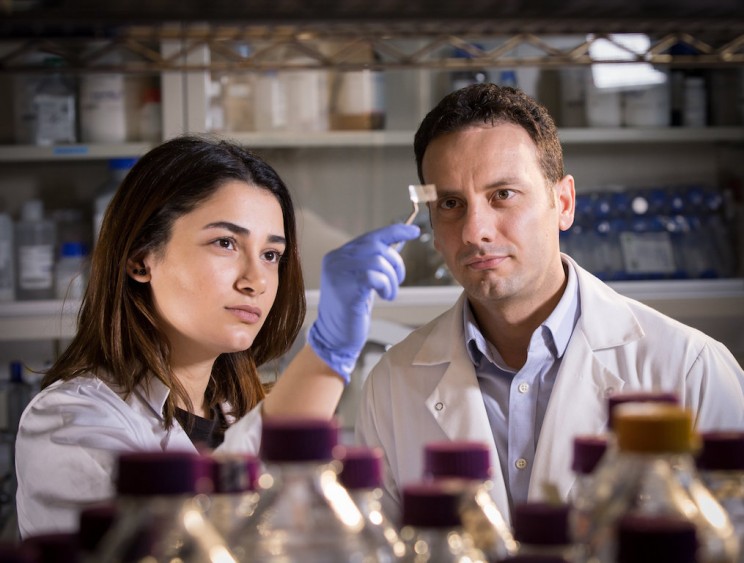
Researchers Hanie Yousefi and Tohid Didar examine a transparent patch, which can be used to test for pathogens in food. (Courtesy McMaster University)
RYANN KAHLER
A team of researchers from McMaster University have developed a patch to detect harmful pathogens in food.
The patch will allow for on-the-spot testing of bacteria in food that would normally take weeks to test for in a lab.
The patch will inform consumers if their food is still good regardless of the expiration date.
The transparent patch, which has been named ‘Sentinel Wrap’ was led by two research teams: Tohid Didar, an assistant professor of mechanical engineering at McMaster University; and Carlos Filipe, the chair of McMaster’s chemical engineering department and biochemist Yingfu Li.
“We made a patch that is very similar to the wrapping you put around the food,” Didar said.
“If there is any bacteria present, there is going to be a florescent signal coming out and then you can use your cellphone simply or handheld device to detect the bacteria inside.”
Didar said about six million people a year get food poisoning.
The idea of the patch came from wanting to make the overall process and chain of food production and packaging smarter in order to try and avoid food contamination outbreaks, such as E. coli and salmonella.
“We are moving towards the smart systems on everything,” Didar said. “We want to have a smart fridge, we want to have applications at home that can be turned into something smart, so the idea was that we could also create smart food packaging.”
The next step in production is to finalize the development of an app or device that can be used to scan the patch.
“We are putting the story out to see if we can start collaboration with industries as well, but we are developing the bio-interface,” Didar said.
The same technology used for the patch could also have broader uses, such as bandages that indicate if wounds are infected, or for wrapping surgical instruments to assure they are sterile.

